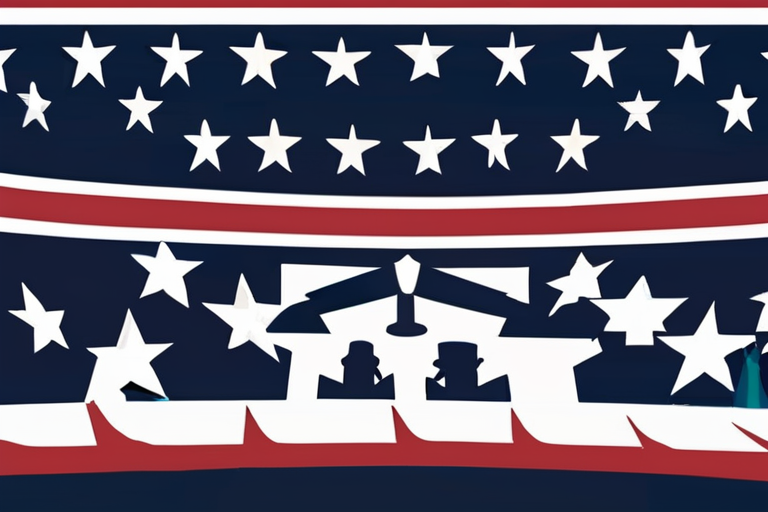Free Speech Debate Reignites as Communities Weigh Hate Speech
In a nation where the First Amendment guarantees freedom of speech, a long-standing debate has resurfaced: does the right to free speech protect hateful or offensive speech? The question has sparked intense discussions in communities across the country, with some arguing that words can cause real damage and others advocating for unfettered expression.
The issue gained national attention in 1977 when the National Socialist Party of America applied for a permit to march through Skokie, Illinois, a predominantly Jewish suburb. The group's intention was to wear brown shirts with swastika armbands and wave signs demanding "free speech for white people." Skokie's village officials refused the permit, citing concerns that the display would be a physical attack on the hundreds of Holocaust survivors living in the area.
"We were not trying to suppress their right to free speech," said Richard Reimer, then-Skokie village attorney. "We were trying to protect our residents from being subjected to a hate-filled demonstration." Reimer's words echo the sentiments of many who believe that certain types of speech can have a tangible impact on communities.
The Skokie case ignited a national debate over the limits of free speech and whether it should be protected even when it offends or harms others. The U.S. Supreme Court ultimately ruled in favor of the National Socialist Party, stating that the First Amendment protects even hateful speech.
Fast-forward to today, and the issue remains contentious. Social media platforms have become battlegrounds for hate speech, with some arguing that online platforms should be responsible for policing content. Others contend that such efforts would infringe upon free speech rights.
"We can't just silence people who say things we don't like," said Dr. Rachel Feldman, a professor of communication studies at Northwestern University. "But at the same time, we have to acknowledge that words can cause harm and that there are consequences for hate speech."
Feldman notes that the Skokie case highlights the complexities of free speech in America. "It's not just about protecting the rights of those who want to express themselves," she said. "It's also about considering the impact on others and finding ways to balance individual freedoms with community needs."
As communities continue to grapple with the issue, some are exploring alternative approaches to addressing hate speech. For example, a recent study by the Anti-Defamation League found that community-based initiatives, such as education programs and dialogue forums, can be effective in reducing hate crimes.
The debate over free speech is unlikely to subside anytime soon. As communities navigate this complex issue, they will need to balance individual freedoms with collective well-being. One thing is clear: the Skokie case has left an indelible mark on the nation's understanding of free speech and its limitations.
Background: The First Amendment guarantees freedom of speech, but it does not protect speech that incites imminent lawless action or contains obscenity, child pornography, or defamation. Hate speech, in particular, has become a contentious issue, with some arguing that it can cause real harm to individuals and communities.
Additional Perspectives:
"We need to be careful not to confuse hate speech with free speech," said Dr. Feldman. "While we should protect the rights of those who want to express themselves, we also have to consider the impact on others."
"The Skokie case was a turning point in our understanding of free speech," said Richard Reimer. "It showed us that words can cause real damage and that communities have a right to protect themselves."
Current Status: The debate over hate speech continues to unfold, with social media platforms, community leaders, and lawmakers weighing in on the issue.
Next Developments: As the nation grapples with this complex issue, it is likely that we will see more efforts to balance individual freedoms with collective well-being.
*Reporting by Npr.*



 Hoppi
Hoppi
 Hoppi
Hoppi

 Hoppi
Hoppi

 Hoppi
Hoppi

 Hoppi
Hoppi

 Hoppi
Hoppi










